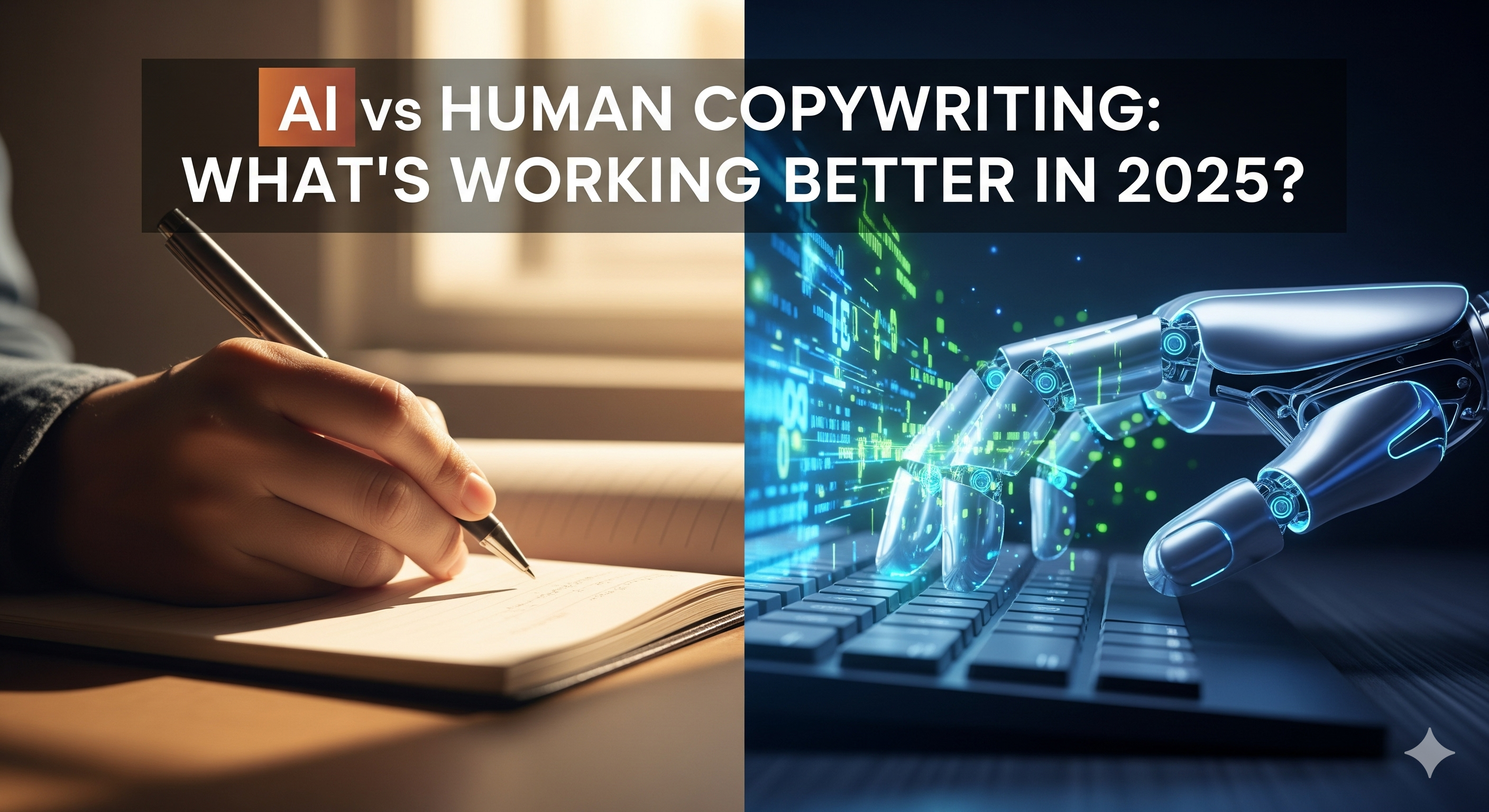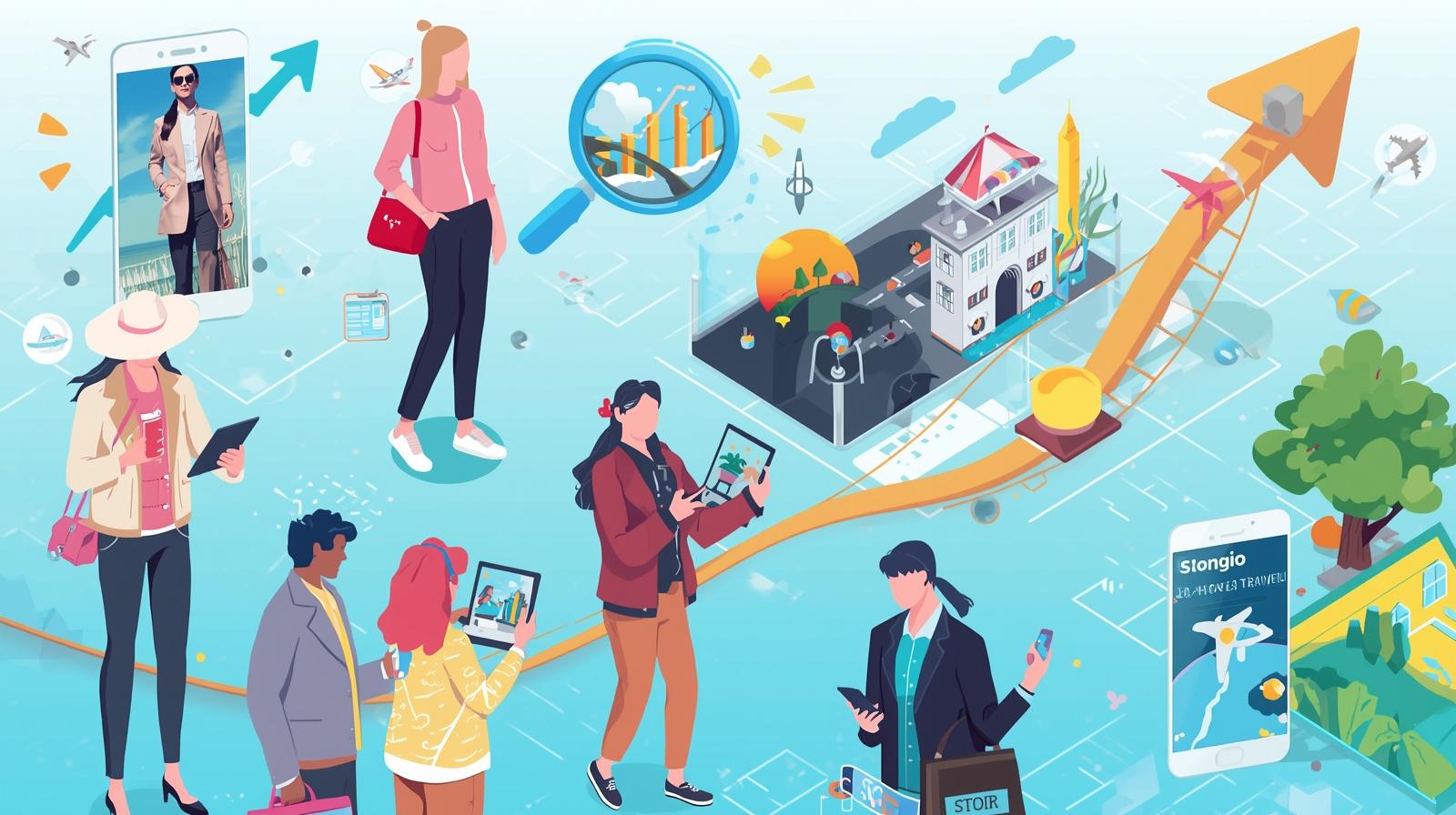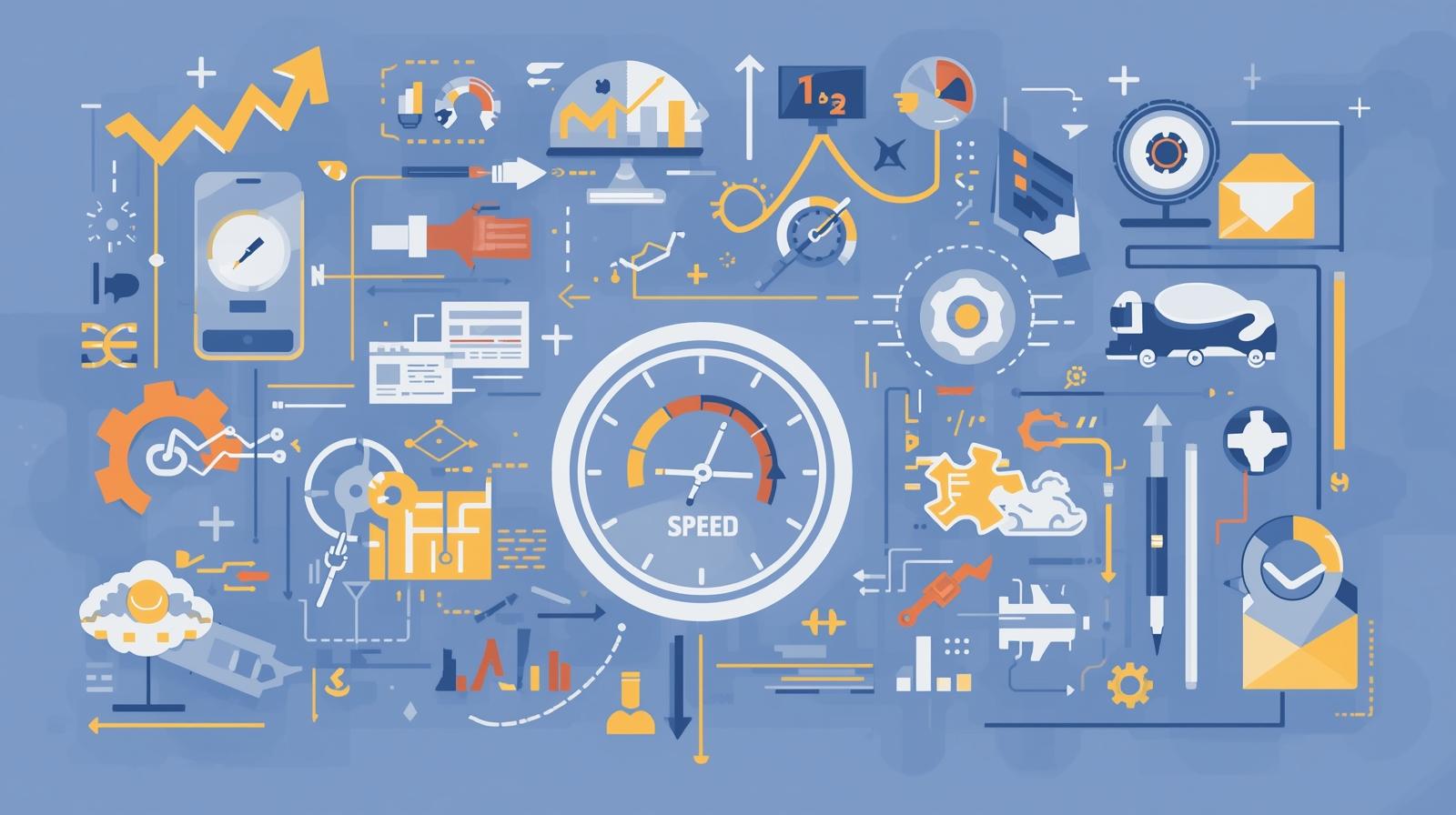In 2025, companies all over the United States are pondering a major question: Do we trust artificial intelligence (AI) to create our content, or do we use human copywriters? With AI tools getting wiser and quicker, numerous businesses are experimenting with both to determine which yields the best results.
But the answer isn’t as straightforward as choosing one or the other. Let’s look at how AI and human copywriting measure up now, and what’s making brands thrive online.
What AI Copywriting Does Well?
AI copywriting technology has evolved significantly in the last few years. Now, it is possible to write blog posts, product descriptions, emails, and even social media captions in seconds using such tools. They consume huge amounts of data and learn language patterns to produce content that reads and sounds natural.
Here’s what AI copywriting does best:
- Speed and quantity: AI is capable of producing several hundred words within a few seconds, saving businesses time.
- SEO optimisation: Most AI tools are programmed to incorporate keywords that optimise content for search engines.
- Consistency: AI is able to keep the tone and voice consistent across various forms of content.
- Cost-effectiveness: For small businesses with limited budgets, AI is an economical alternative to using full-time writers.
Yet, AI has its limitations. It can fail to master emotional storytelling, cultural nuance, and reading brand identity and personality. At times, the writing is simply too robotic or lacks the human touch that resonates with readers.
Why Human Copywriters Still Matter?
Even in 2025, human copywriters are indispensable when it comes to creativity, empathy, and storytelling about your brand. A good writer understands how to talk to their customer in a personal and authoritative way. They can tone down or turn up the volume, inject humour, and craft emotional bonds that AI sometimes fails to catch.
This is where humans excel
- Emotional understanding: Humans are more receptive to information that resonates and feels tangible. Human copywriters understand how to connect with emotions and experiences.
- Brand voice: Each company has a personality of its own. Human copywriters are able to refine that voice and differentiate it.
- Creative thought: Humans can generate new ideas, witty headings, and novel approaches that AI may not be able to devise.
- Cultural sensitivity: Writers are aware of local fads, slang, and culture, making content more applicable to target audiences.
Although human writing is time-consuming and potentially expensive, the outcome tends to create greater interaction and improved customer trust.
What’s Working Best in 2025?
The reality is, most successful companies are doing this with both AI and human copywriters combined. AI assists with instant drafts, keyword research, and simple content generation. Then, human writers take over to hone the message, infuse personality, and ensure the content really resonates with readers.
This collaborative method is working best in 2025. It enables brands to act quickly without compromising on quality. For instance, an organisation can employ AI to craft a product description, but human editing will refine it to reflect the tone and values of the brand.
Final Thoughts
At Verve Online Marketing, we don’t think of great content as merely words; it’s about trust-building, influencing buyers, and driving results. That’s why we blend smart technology with human creativity to produce content that performs well and feels authentic.
Whether you’re looking to boost your SEO rankings, improve your brand image, or increase conversions, our dedicated team knows how to balance AI efficiency with human insight. We’ve helped businesses across the US grow their online presence by crafting content that speaks to real people, not just algorithms.
If you’re prepared to dig deep into what’s performing best for your business in 2025, Verve Online Marketing is committed to guiding you to reach, expand, and convert your online audience with assurance.






